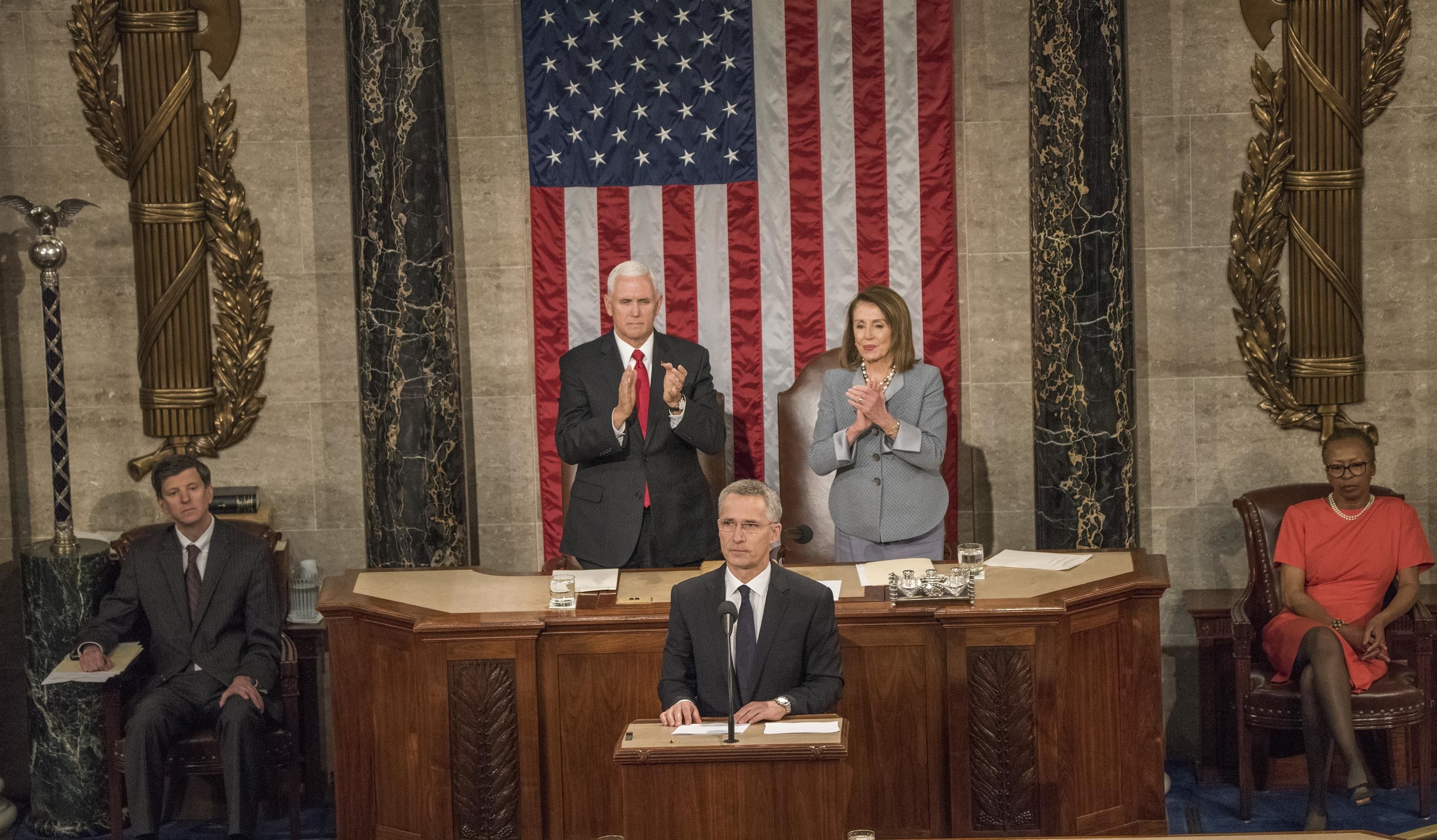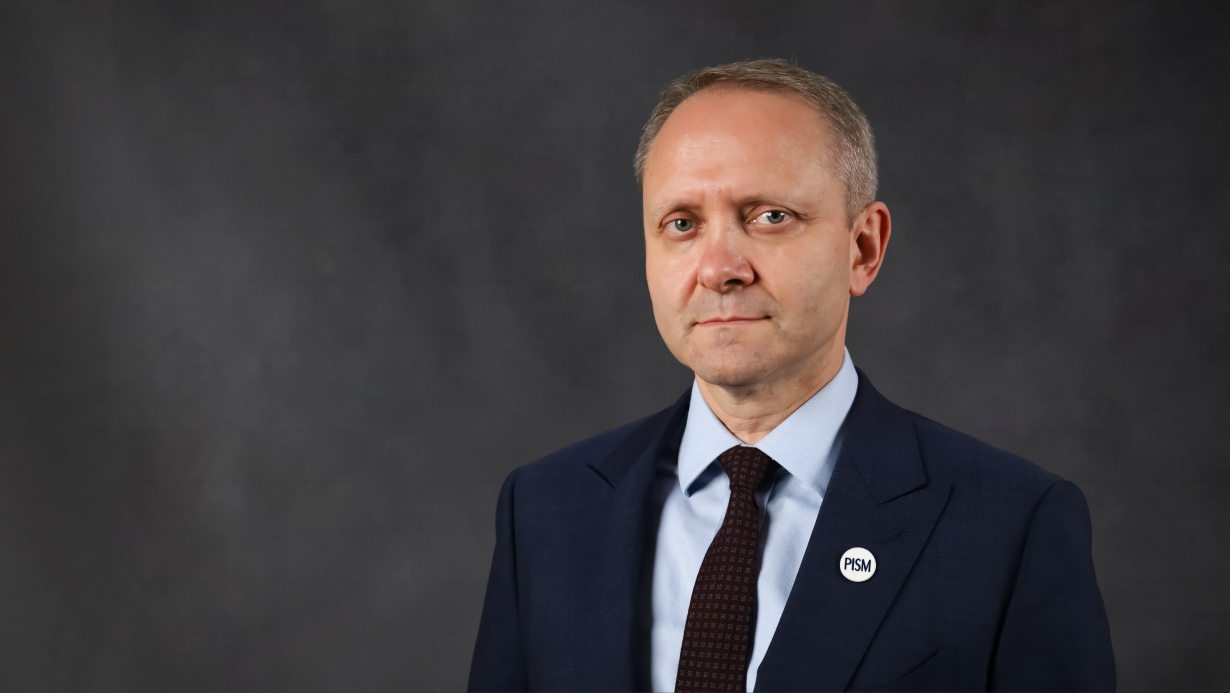NATO Strategic Reflection: How to Augment the Political Dimension and Consultations

Just before the meeting of NATO leaders in London in December 2019, French President Emmanuel Macron publicly criticised the Alliance, stating that it suffered from “brain death”. The immediate reason for the criticism was the Turkish intervention in Syria launched in October aimed primarily at the Kurdish YPG, which Turkey views as a terrorist group, while some NATO states treat it as an ally in the fight against the so-called Islamic State (ISIS). Macron emphasized that the path to this intervention was opened through decisions by U.S. President Donald Trump to withdraw U.S. troops from Syria without consulting allies. According to the French president, the Turkish offensive complicated the fight against ISIS and increased the risk of a Syrian counterattack against Turkey. This would pose a dilemma for NATO about whether Art. 5 of the Washington treaty would apply (defence of one by all).
France and many other members of the Alliance are afraid that U.S. policy towards Syria is just another sign of the Americans concentrating on the rivalry with China to the detriment of its commitment to broader European security. Such concerns have further intensified under Trump’s prolonged criticism of NATO.
In response to the overt divisions, at a meeting in London, the leaders of the member states announced a period of strategic reflection, which is expected to strengthen the consultation mechanisms and the political dimension of NATO. On 31 March, NATO Secretary General Jens Stoltenberg appointed a group of 10 experts who should present him with recommendations on this matter by the end of the year. The group is headed by Wess Mitchel (U.S.) and Thomas de Maizière (Germany). It also includes Greta Bossenmaier (Canada), Anja Dalgaard-Nielsen (Denmark), Hubert Védrine (France), Marta Dassù (Italy), Herna Verhagen (Netherlands), Tacan İldem (Turkey), John Bew (UK), and Anna Fotyga (Poland). At the beginning of April, the group met for the first time.
NATO Consultation Mechanisms
NATO has developed an institutional machinery and tradition of consultation primarily in support of its main mission, which is the defence of allied territory and security of the Euro-Atlantic area. At the same time, since its inception the Alliance has faced a challenge of how to strengthen consultations on the planned activities of the member states outside Europe, which may negatively affect NATO security. Consultations are based on the assumption that the state may modify its plans under the influence of other allies’ opinions. Even if consultations do not lead to such a change, the Alliance will not be surprised by unilateral actions and obtains the necessary time to agree a joint response. This reduces the risk of tensions that could threaten NATO’s political cohesion and credibility. Nevertheless, NATO members often do not consult, especially when they expect that the chances to receive Alliance support are slim and consultation only limits their freedom of manoeuvre.
Strategic Challenges and Tensions in NATO
The Alliance has referred to expert groups only a few times in its history to reach consensus on the scope of its mission and institutional mechanisms. The announcement of the strategic reflection can therefore be a signal of a serious crisis in the Alliance. It is only partly the result of unilateral U.S. actions during Trump’s presidency and the Turkish offensive in Syria. Tensions in NATO are caused by different threat perceptions and attempts to strike a balance between the ability to defend NATO territory and make it more responsive to other threats. The U.S. is moving toward greater rivalry with China and Russia and expects NATO to take greater responsibility for the security of Europe and its neighbourhood.
After Russia’s annexation of Crimea in 2014, NATO decided to strengthen its defence and deterrence potential, but its ability to coordinate policies towards the Middle East and North Africa remains limited because of traditional differences of interests. At the same time, the U.S. has begun to exert pressure on NATO to adapt to the challenges associated with China’s growing power, for example, by limiting Chinese companies’ access to investment in critical infrastructure, which many NATO members are not yet ready for. The main task facing the group of experts should therefore be to develop recommendations on strengthening consultation mechanisms on the Middle East and North Africa, and even China.
Scope of Work of the Expert Group
The group’s mandate concerns only political issues, but the scope of the discussion can be very wide. The group consists mainly of former politicians and employees of national administrations, whose views may reflect the interests of the states they represent. Some states may be interested, for example, to use the reflection process to exert political pressure on a return to some form of NATO-Russia cooperation, suspended after the annexation of Crimea. The COVID-19 pandemic, which erupted after the NATO Summit in London, may also broaden the scope of discussion to new threats and challenges for the Alliance.
The political and practical use of recommendations prepared by experts will depend on the NATO Secretary General. He may, with the acceptance of the allies, present selected proposals for approval by the North Atlantic Council (NAC)—the Alliance’s main decision-making body. In that case, the recommendations would provide formal guidelines for NATO policies. However, if the recommendations are too ambitious and politically not feasible, the Secretary General may publish some or all of them in the form of a report that is not approved by the NAC. Then, they will not formally serve as guidelines for NATO actions but could be used to exert political pressure on further work to improve the functioning of the Alliance.
Conclusions and Recommendations
The mere announcement of the reflection period and the establishment of a group of experts is a political tool that allows the Alliance to reduce the political tensions revealed before the London Summit. The experts should, however, develop recommendations that will reduce the risk of similar tensions in the long run. It will be a challenge to manage the discussion in such a way that it does not create unrealistic expectations and does not create new tensions.
To strengthen NATO’s political coherence and consultation mechanisms, experts can recommend two types of actions that were used in the past to diffuse internal tensions. In the political dimension, the Alliance adopted reports and declarations that specifically emphasized the importance of consultation on issues extending beyond collective defence and the Euro-Atlantic area if they could affect NATO’s security. The last time NATO approved such a declaration was in 1974. Hence, the renewal of such a commitment in the form of a separate, politically highly visible declaration would create pressure on members to use consultation mechanisms.
In practical terms, the Alliance attempted the adaptation of its institutional mechanisms to new political challenges. To this end, the experts may recommend a review of committees and working groups that support the work of the NAC and facilitate the development of consensus. The purpose of the first review in 10 years might be to broaden the subject-matter, political discussion on the Middle East, Africa, and China. The political discussion would facilitate the coordination of policies of the member states, offering additional incentives for members to use consultations.
It is in Poland’s interest not only to use the reflection process to diffuse tensions temporarily but also to seek solutions that reduce threats to NATO cohesion in the long term. The lack of such solutions may lead to persistent tensions, which will harm the Alliance’s ability to perform its major function—collective defence.


